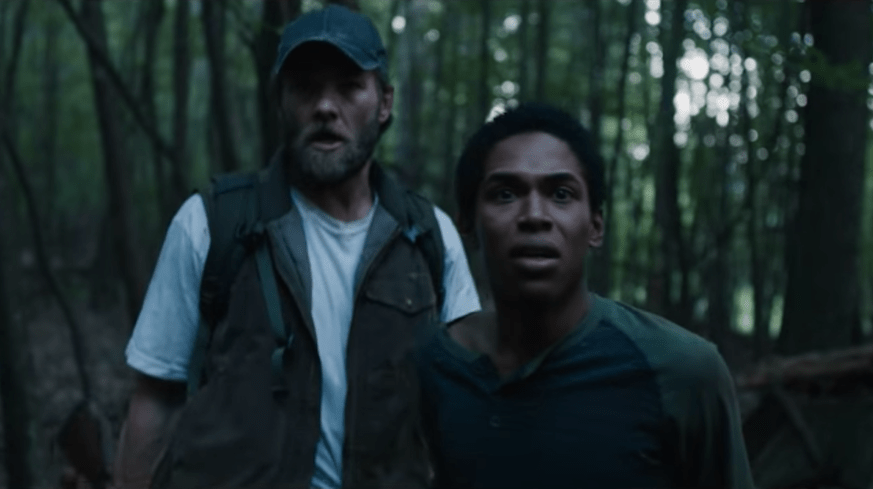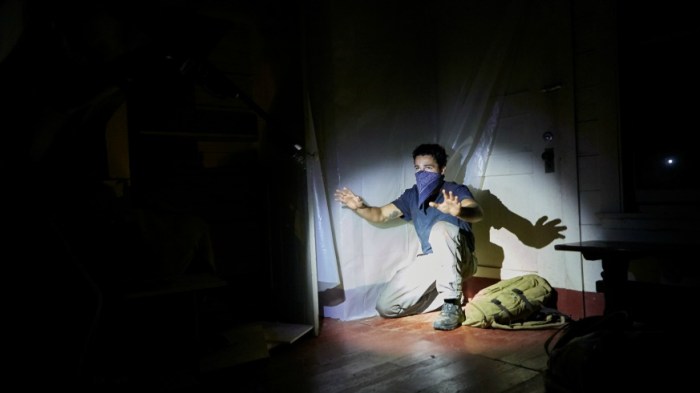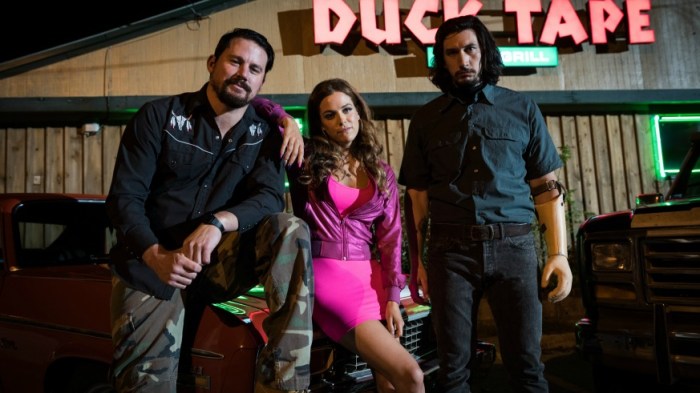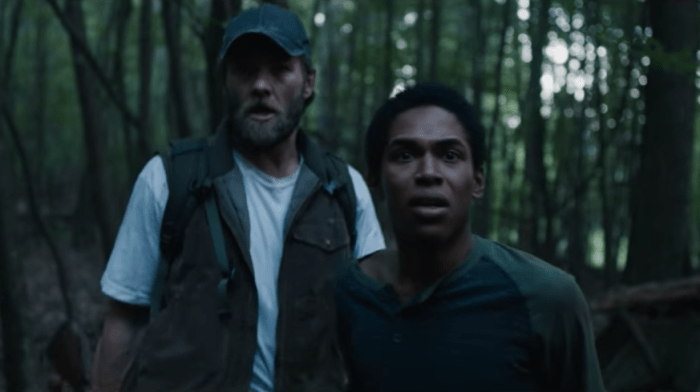‘It Comes at Night’
Director: Trey Edward Shults
Stars: Joel Edgerton, Christopher Abbott
Rating: R
4 (out of 5) Globes
There are two kinds of scary movies. There are horror films, of course. But let’s be frank: Isn’t the real world more frightening than some fictional boogeyman? In our book, cheap “boo!” frights have nothing on movies that prey on actual fears — documentaries that argue the world is going to end soon, morbid dramas (usually by Ingmar Bergman) about how each of us will one day die. “It Comes at Night” is both kinds of scary. In fact, it takes the second, brainier kind of scary and cleverly couches it in the first. You see it to jump in your seat; you wind with something even freakier: you get to watch what it’s like to live when life is no longer worth living.
The “It” isn’t even some monster. It’s something far worse: other people. Joel Edgerton’s pitiless mountain man Paul has hunkered down with his wife, Sarah (Carmen Ejogo), and their teenage son, Travis (Kelvin Harrison Jr.), in a remote cabin in the woods. Viewing strangers with shotgun-wielding suspicion, this brooding brood have boarded up the windows and they rarely venture outside without gas masks, as though this were a backwoods version of “The Others.” Alas, they’re not paranoid: Some highly infectious contagion has apparently laid waste to anyone who hasn’t turned into a Texas survivalist wacko.
One night, “It” comes. It’s Will (Christopher Abbott), a man who tries to break into their home and is rewarded with a knock to the noggin. Will swears he didn’t know they were there; he’s just desperate to find food and water for his family. It’s with great reluctance that Paul cuts a deal: In the interest of pooling their painfully limited resources, Will moves his much less downer family — his wife, Kim (Riley Keough), and their very young son (Griffin Robert Faulkner) — into their compound. But Will is shifty. And Paul is a hothead. The good times are bound to only last a fun montage or two before everything goes straight to hell.
It’s almost cruel (although kind of funny) what director Trey Edward Shults does to the audience: He directs “It Comes at Night” as though it were a straight-up horror movie. As in his excellent, acrobatically-shot family drama indie “Krisha,” his camera is always on the move — always creeping and crawling through darkened rooms. He’d direct the hell out of a “Conjuring” movie. But the sickening tension won’t be paid off by anything so comforting as scary ghosts. Instead we’re stuck in the real world, with painfully real people, with all their neuroses and hang-ups. It’s an apocalypse in which everything that is good has died — where even the idea of protecting one’s family has become poisonous and deadly.
The only bright spot is Travis — and he’s depressed. He may seem like a typically shy, sullen, lonely teenager, but the gravity of the situation makes his problems epic. He knows he’ll never have a normal life; he’ll never have friends or lovers. But he sometimes nurses the delusion of a better life. At one point, Travis has a late-night chat with Kim. It turns giggly, mildly flirtatious. Then Kim casually reminds him he’s just a teenager. His face drops. It’s not just that she’d never even consider him as a sex object; it’s that she doesn’t seem them as equals. He returns to his waking, Ballardian nightmare, more defeated than before.
That’s far from the hairiest moment in “It Comes at Night”; Travis will soon pine for the days when he was getting shot down. But it still hurts. Shults manages to make us feel existential despair right in our gut. Every shot, every camera movement, every hesitant character exchange viscerally reminds us that these are people too terrified to admit life won’t get better — that survival has become, for them, a selfish and destructive act. The effects of a typical horror film disappear before you’re out the theater door; “It Comes at Night” lingers for days. It is, in fact, truly scary.
Follow Matt Prigge on Twitter @mattprigge
















